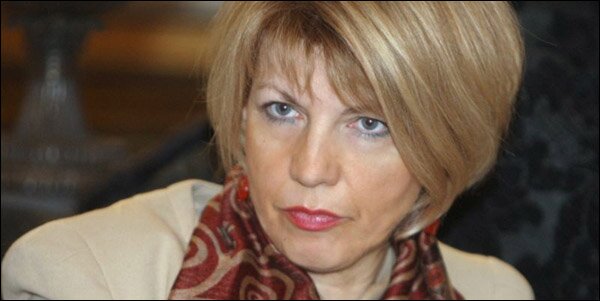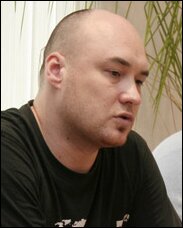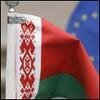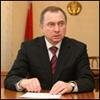Другие материалы рубрики «English»
-
 Belarus receives 14 Syrian refugees
Belarus receives 14 Syrian refugees
Three refugee families from Syria arrived at Minsk National Airport on Monday to stay in Belarus within the framework of a project... -
 Ukraine peace summit begins in Minsk
Ukraine peace summit begins in Minsk
Talks between the leaders of Ukraine, France, Germany and Russia have begun in the Palace of Independence in Minsk...
- Biathlon Youth and Junior World Championships draw to close near Minsk
- US State Department’s envoy to visit Belarus this week
- Lukashenka meets with EEAS deputy secretary general
- EU foreign ministers, Brussels officials expected to visit Minsk soon
- Poroshenko upbeat about relations with Belarus
- Revelers in Minsk celebrate end of Butter Week
- Leaders of France, Germany, Russia, Ukraine arrive in Minsk for summit on Ukraine crisis
- United Kingdom’s Visa Application Center in Minsk moves into permanent office
- Minsk residents paying tribute to victims of Charlie Hebdo massacre in Paris
- Minsk adorned by New Year illumination
English
High-ranking EU official meets with Belarusian civil society activists
Helga Schmid, deputy secretary general at the European External Action Service, met with representatives of Belarus’ civil society in Minsk on Tuesday.

The meeting lasted only about 20 minutes, as Ms. Schmid’s talks with Belarusian Foreign Minster Uladzimir Makey and then Alyaksandr Lukashenka had taken longer than planned, Valyantsin Stefanovich, deputy chairman of the Vyasna Human Rights Center, told BelaPAN.
Ms. Schmid was accompanied by Gunnar Wiegand, director for Russia, Eastern Partnership, Central Asia, Regional Cooperation and the OSCE at the European External Action Service, and Maira Mora, head of the European Union’s Delegation to Belarus.
The meeting also featured representatives of the Belarusian Helsinki Committee, the Vyasna Human Rights Center, the Belarusian Institute for Strategic Studies, International Consortium EuroBelarus, a prisoner rights group called Platform Innovation, the Belarusian Association of Journalists, and the Assembly of Pro-Democratic Non-Governmental Organizations.
In her opening remarks, Ms. Schmid said that she had met with a number of Belarusian government officials. The subjects under discussion reportedly included the crisis in Ukraine, relations between the EU and Belarus and the human rights situation in Belarus.
 “According to Schmid, Lukashenka told her that Ukraine should remain sovereign and indivisible,” Mr. Stefanovich said. “Schmid replied that the EU highly appreciates Belarus’ official stance on Ukraine. At the same time, she said, this does not mean that Belarus’ problems should not be discussed, considering that the EU had always emphasized the importance of European principles and values, which include human rights and democracy.”
“According to Schmid, Lukashenka told her that Ukraine should remain sovereign and indivisible,” Mr. Stefanovich said. “Schmid replied that the EU highly appreciates Belarus’ official stance on Ukraine. At the same time, she said, this does not mean that Belarus’ problems should not be discussed, considering that the EU had always emphasized the importance of European principles and values, which include human rights and democracy.”
Ms. Schmid expressed regret that there had been fewer “positive changes” in Belarus in 2014 than the EU had hoped to see, Mr. Stefanovich said.
Last year’s human rights situation in Belarus did not improve compared with previous years, with severe restrictions on the exercise of basic civil and political rights remaining in place, he said.
According to Mr. Stefanovich, he criticized the amendments to the Media Law enacted that had been enacted in December 2014 and raised the issue of politically motivated imprisonment, noting that Belarusian human rights defenders viewed six people as prisoners of conscience. Mr. Stefanovich noted particular pressure on one of them, Mikalay Dzyadok, who is expected to have his prison term extended by one year as a result of a trial that begins on Wednesday. Mr. Stefanovich also expressed concern that authorities continued to execute prisoners and had largely ignored the OSCE’s recommendations for amending the Electoral Code.
Ms. Schmid said that the EU was closely following the situation of Mr. Dzyadok.
 Zhanna Litvina, chairperson of the Belarusian Association of Journalists, said that Ms. Schmid had asked questions about the forthcoming presidential election. “I said that working conditions for journalists always deteriorate in the run-up to elections,” she said. “The denial of access to information becomes more common.”
Zhanna Litvina, chairperson of the Belarusian Association of Journalists, said that Ms. Schmid had asked questions about the forthcoming presidential election. “I said that working conditions for journalists always deteriorate in the run-up to elections,” she said. “The denial of access to information becomes more common.”
Ms. Litvina told the EU delegation about the new version of the Media Law, noting that it would allow authorities to block access to unwanted news websites. She said that they had tested the amendments immediately after their enactment, blocking more than 10 news sites. She also pointed out that freelance journalists continued to be fined for cooperating with foreign media outlets.
Ms. Litvina raised concerns about Russian media propaganda, warning that it “poses a threat to journalism as a profession.” Ms. Shmid replied that Mr. Lukashenka had also mentioned this problem while talking to her.
 Dzyanis Melyantsow, a senior analyst at the Belarusian Institute for Strategic Studies, said with reference to Mr. Wiegand that Belarusian government officials would hold a round of consultations with their EU colleagues on March 9 within the framework of the bloc’s European Dialogue on Modernization with Belarus. The possibility of reforming Belarus’ judiciary and Electoral Code as well as human rights issues are expected to be discussed during the talks, Mr. Melyantsow said. According to him, Ms. Schmid promised that the issue of politically motivated imprisonment would also be under discussion.
Dzyanis Melyantsow, a senior analyst at the Belarusian Institute for Strategic Studies, said with reference to Mr. Wiegand that Belarusian government officials would hold a round of consultations with their EU colleagues on March 9 within the framework of the bloc’s European Dialogue on Modernization with Belarus. The possibility of reforming Belarus’ judiciary and Electoral Code as well as human rights issues are expected to be discussed during the talks, Mr. Melyantsow said. According to him, Ms. Schmid promised that the issue of politically motivated imprisonment would also be under discussion.
“I said that liberalization was unlikely in Belarus, simply because there was no need for it,” Mr. Melyantsow said. “The social contract works a little differently today. In the past, the public demanded prosperity in exchange for loyalty. Now it wants peace. The situation in Ukraine has made any reforms or compromise with the EU unnecessary. In the last four years, Brussels has made all concessions demanded by Minsk even without getting anything in return.”




В настоящее время комментариев к этому материалу нет.
Вы можете стать первым, разместив свой комментарий в форме слева